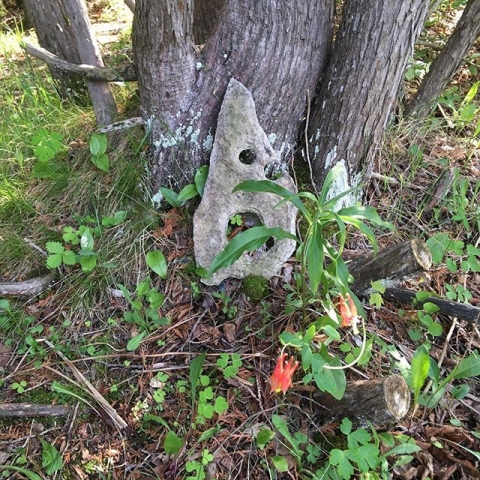
In Canada, Indigenous people have a complex and continued story of colonization. As a white person, I can’t personally bring first voice (or ‘lived experience’) of Indigenous people. But I can help children and educators connect to their shared history of oppression in our country, and make sure they hear the stories that previous generations were not told. For educators it is always a good idea to bring someone in who can speak to ‘lived experience.’ By hearing a different perspective, especially one of a marginalized group, educators and children/students are challenged to consider the hegemonic system that is perpetuated through the public education system, and the complexity of power structures within Canadian society. Hearing stories, whether in person or through media, can help them make connections from history to today. It can also help people improve their awareness of some of the ongoing impacts of colonialism, such as inequity in education, with clean water, and with public safety, such as in the case of the hundreds of Missing and Murdered Indigenous Women and other issues that disproportionately impact Indigenous people today. Educators can draw attention stories that have been avoided, ignored or intentionally denied attention. As settlers it is much easier to remain ignorant of these issues, as it allows us to live under the illusion that things are going well in our country, but once the true stories start coming out about the lack of equity between Indigenous and settler people, the injustice demands action.
There are many ways of starting to open up students’ eyes to issues of ongoing colonialism and the corresponding resilience of Indigenous people through cultural exchanges. Even for very young children who may not be ready for the hard facts of our country’s colonial history, cross-cultural experiences prepare them for later conversations, and introduce them to world views they may not otherwise encounter. Sharing culture (especially one that is not your own) is complex. Anyone can have a connection with the land, and research suggests this is a missing piece for many children that is leading to great disconnection in terms of mental, emotional, physical and spiritual health. Culture is not owned, but shared and passed down through the generations. Sharing traditions such as smudging requires the sharing of the culture and the story as well, which should come from an Indigenous person. Teaching singing, dancing, crafts, traditions, ceremonies should be done by someone who has lived experience. Part of doing this respectfully is to learn the traditions and protocols of the land you are on. For instance in Michi Saagig territory where I live, I always try to offer tobacco when Indigenous people generously share their time and knowledge with me. Another consideration is to honour their time in monetary ways, recognizing this likely isn’t the first or last time this person will be asked to share their time. Everyone has to pay the bills, so setting aside resources such as a budget line in your program for this inclusion of Indigenous perspectives helps to honour people in multiple ways, according to your agreement. A good way of finding out how to honour someone’s time is just to ask them if there are protocols or other considerations that should be made as your guest.
It is also important to know that one Indigenous person does not speak for everyone in their community, and certainly not all Indigenous people. Just as you couldn’t ask one woman to represent all women, you must remember that there is a diversity of perspectives, which is why it is important to nurture many relationships to start to understand issues in more nuanced ways. One debate that has arisen is about using cultural symbols, such as tepees or dream catchers in classrooms. Some people might feel this is appropriate if you have the teachings about where these came from. Others find this to be an act of appropriation and reinforcing stereotypes. It’s not always going to be straightforward, especially as you hear various perspectives, but we will muddle through this by continuing to learn and remaining open-minded to different voices and perspectives.
As we rebuild relationships that have been broken there will be moments of feeling unsure and uncomfortable about how to proceed. If we can all lean into the vulnerability a bit, and stay humble, we will figure this out together in community.
